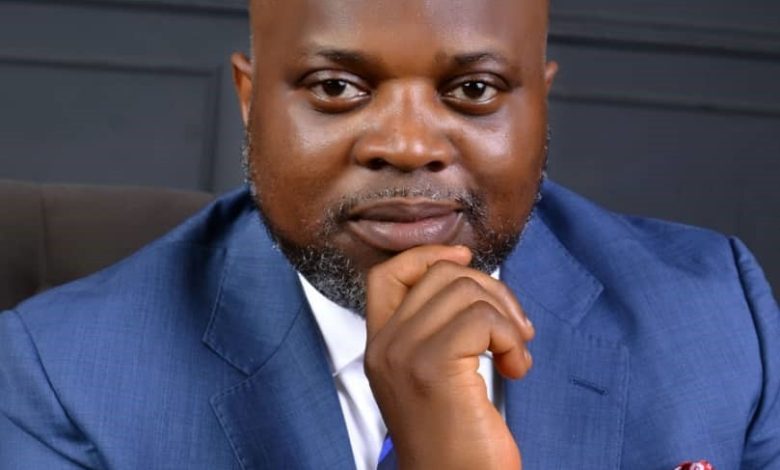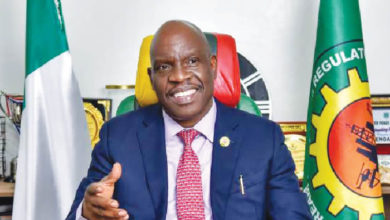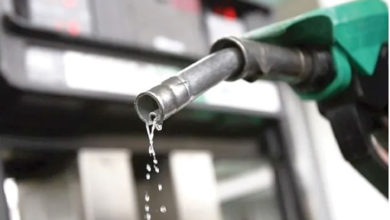
- We travel out to many prestigious universities around the world and are bombarded by copious amounts of case studies pertaining to their companies, governments and projects, which offer great insights for learning, and to which we add our intellect to making those cases and indeed the entire systems within which they operate, get better. I argue that we should write more case studies about ourselves – even of our small companies and entities.
We travel out to many prestigious universities around the world and are bombarded by copious amounts of case studies pertaining to their companies, governments and projects, which offer great insights for learning, and to which we add our intellect to making those cases and indeed the entire systems within which they operate, get better. I argue that we should write more case studies about ourselves – even of our small companies and entities. Here, we have several constraints. Perhaps the academia wants to mind its business and not ‘pokenose’ into other people’s businesses. Perhaps, we believe that case studies should be written about massive conglomerates only. And as it pertains to government, the private sector and academia, in trying to protect their bread and butter, completely steer clear. Even those organizations of which case studies should be written are not willing to divulge information and egos get in the way; if you write about them and there’s any negativity, those who run the system may take offence. Also, the few analyses and case studies that we have had have been parked in one corner, gathering dust, forgotten to history. However, I daresay that until we institute a constant culture of learning, our problems will not only abide but metastasize. I have therefore chosen today to write a sort of case study about the ongoing Naira redesign, with a view to expatiating on the many learning points.
BACKGROUND
On the 26th of October 2022, the Governor of the Central Bank of Nigeria announced that the bank will be pulling out the old design of the N200, N500 and N1000 notes starting from the 15th of December of the same year. This process, he said, will culminate on the 31st of January, 2023, when the old currency will no longer be legal tender. Said he:
“Evidently, currency in circulation has more than doubled since 2015; rising from N1.46 trillion in December 2015 to N3.23 trillion in September 2022. This is a worrisome trend that cannot be allowed to continue… In recent years, the CBN has recorded significantly higher rates of counterfeiting especially at the higher denominations of N500 and N1,000 banknotes… Although global best practice is for central banks to redesign, produce and circulate new local legal tender every five to eight years, the naira has not been redesigned in the last 20 years. On the basis of these trends, problems, and facts, and in line with provisions of sections 2 (b), section 18 (a), and sections 19, subsections (a) and (b) of the CBN Act 2007, the management of the CBN sought and obtained the approval of President Muhammadu Buhari to redesign, produce, and circulate new series of banknotes at N200, N500, and N1,000 levels. In line with this approval, we have finalized arrangements for the new currency to begin circulation from December 15, 2022. The new and existing currencies shall remain legal tender and circulate together.”
The Governor went ahead to list the worsening shortage of clean and fit banknotes, the increasing ease and risk of counterfeiting evidenced by several security reports and recent developments in photographic technology and advancements in printing devices have made counterfeiting relatively easier, as part of the reasons for the move. On the sidelines were other reasons – a need for the Central Bank to have a better handle on money in circulation, reduce inflation by reducing money hanging around everywhere where the banking sector cannot account for them, reduce speculation against the Naira, and also target criminals whose stock in trade is raw cash by promoting a less cash-heavy economy.
People waited with bated breath for December 15, 2022, and what that date arrived, the rate of replacement of the old currency has been slow. The Central Bank had to send some of its senior staff to remote areas to gauge the level of awareness and compliance. The experience in the field as I have been told, was that many people were not aware in the rural areas, and many banks had closed shop in those places due to crime and for business reasons. As the initial deadline loomed, it was clear that there was crisis on ground. Many would have lost their livelihoods, and there would have been mass protest if this happened. The rate of production of the new currency seemed a lot slower than the rate of demand, and so some Nigerians started taking advantage, exchanging old notes for new one for huge premium. In all the scarcity, some Nigerians still got their hands on the money for the weekend-ly ‘spraying’ at our ubiquitous owambes. This further fueled anger among the people. Whodunnit? Was it the bankers who hoarded the new currency for their personal benefits? The CBN further directed that banks only pay the new currency through automated teller machines (ATMs). I understand that each of these ATMs could take up to N8 million. But most of them are descended on so fast and empty out in an hour or less. The CBN, in collaboration with other security agencies have also found out several sharp practices being perpetrated by sundry bankers. In fact, the CBN alleges that the initial new currencies rolled out simply disappeared as they suspect politicians cornered them through the banks.
On the 30th of January 2023, a day before the initial deadline, the Governor of the Central Bank of Nigeria announced that on the order of the President, the deadline will be shifted be exactly ten days. But the situation became even tighter and messier afterwards. Somehow cash got tighter to come by and there has been riots on the streets, with many banks destroyed, especially in the Ibadan area.
The CBN instructed banks to go back to paying the new currency across the counter on Thursday February 2, 2023. Governors of APC states also met the president to complain about how the policy is going and the president promised to have a rethink only after the expiration of the new ten days moratorium. I believe the cash scarcity will ease out in a few days. But that is if the already scarcity-crazed people will allow the banking sector to get its act together.
RAMIFICATIONS OF THE PROBLEM
The issue here is; ‘what really happened?’ what did someone miss out? We must have a mindset to learn from our mistakes. For me, it is not about noise and finding who to lynch. Inside the lessons of the moment lie the wealth that we need to preserve for public policy and for our children unborn.
- CASE IS DIFFERENT FROM INDIA – Nigeria’s case is different from India’s oft-quoted scenario. India CANCELED some denominations outrightly and gave a very short period for compliance, leading to the melee. Nigeria did not cancel any denomination and gave 90 days for compliance. However, problems started when it looked like new cash released were not passed on to regular customers and an acute scarcity occurred. Also, there seemed to be an underestimation of the cash need of customers in general, as well as the predilection of Nigerians to criminal manipulation and exploitation of any undue advantage. Somehow, the CBN missed the fact that we now have fewer bank branches in rural areas in 2023 than we did in 1984!
- POLYMER VS COLOR CHANGE – Whereas many countries around the world are transiting to polymers for their cash, Nigeria did not get that luxury this time. Perhaps this is because we don’t have local capacity (though that may be acquired). Polymer notes are more difficult to handle in bulk and that provides its own disincentive. It is also more difficult to forge/counterfeit. As currency management is meant to be a regular affair, future central bank leaders should consider polymer for the next upgrade.
- PSYCHOLOGIES UNANTICIPATED/MISMANAGED – Some psychologies were mismanaged or unanticipated until they caused crises. First is the issue of ‘spraying’. Even as Nigerians struggled to get some cash for daily need, connected partygoers got their hands on large amounts of new notes which they went and displayed and danced upon. Luckily a couple of people have been arrested. There is also a certain curiosity about obtaining the new cash given that a change such as this had not occurred since basically 1984 (39 years ago under the same leader). Some Nigerians hoped the policy will be reversed and so did not move until the last moment. And most people who obtained some, were slow in spending. The new currency was treated as prized possession rather than means of exchange. By the time a scarcity developed, panic set in. Also, the greed of bank operatives who hoarded the cash was underestimated until the CBN and anti-corruption agencies started making the rounds. Politicians who were targeted with the policy also outsmarted the system by reaching mutually-lucrative deals with bank managers.
- LOW PRODUCTION CAPABILITY – It seemed obvious that the local capacity to produce new currency was low for an economy like Nigeria. Or rather, it could be that the CBN underestimated M1. It is acceptable however that in policymaking, new lessons are quickly learnt and adjustments made. Policy success will depend on the speed and accuracy of the learning and response.
- POLITICS – The political twist added complication to the policy. The President, in trying to leave a legacy of a free and fair elections, stated that he hoped to deprive politicians of cash for the upcoming election. This amounts to using the CBN as a political tool and further complicates the fate of the CBN Governor who had himself tried to contest for a presidential ticket in the ruling party. A lot of flak was directed in the way of Emefiele. However, Politicians got the better of the system all the same. They struck deals and cleared the first few disbursements, allegedly without passing their stashes through any accounts in the banks.
- DEMOGRAPHIC AND SOCIOLOGICAL CHANGES SINCE 1984 – From the immediate outcomes of the policy, we could see how Nigeria had changed demographically and sociologically since the last time such an exercise was performed. From Point of Sale (PoS) operators taking advantage of fellow Nigerians, to the blowing out of proportion of issues which then resulted in panics and riots, to the fact that Nigerians are now much less patriotic and more impatient, these are changes to note. Also, Nigerians have become more fearless and more disdainful of authority hence more difficult to control.
- OUR BANKING SUPERSTRUCTURE AND MODERNITY – A keen observer will conclude that Nigeria has fewer banks in the rural areas today than we had in 1984, 39 years ago, and that is a tragedy. The currency redesign exercise again exposed this, and this is good information for the Central Bank of Nigeria. Banks were consolidated in 2005/6, because we wanted them to do bugger transactions and be stronger. But we ended up creating too-big-to-fail banks which had to be rescued with taxpayers’ monies after overtrading in 2011. Subsequently, there seems some calm on that front, but these big banks had rolled back their branches in rural areas due largely to insecurity. Many branches deemed unprofitable had also been closed. The currency swap exercise also revealed that the alternatives to normal banking have not yet taken root as they could not back up quickly. Many local governments in Nigeria have no bank presence at all. This is cause for concern for the federal government. There has to be some alternatives going forward. Our microfinance or community bank models may be revisited as most collapsed due to bad business models and greed.
- WIDENING INCOME DIVIDE AND THE WAGES OF ILLITERACY/POVERTY – One other lesson from the currency swap exercise is the fact that the income divide seems to have widened into a gorge. People queued (or rather mobbed) up en masse at ATMs across the country – where they are available, to withdraw very negligible amounts. The poverty problem was further laid open as those who were more comfortable have no cash to tip those who had little. Even when they had, they were naturally slower in spending. The exercise laid bare the fact that little had been done on the issues of illiteracy and poverty as well. Many of those who destroyed bank branches probably had no money in their accounts – that is if they had accounts.
- EFFECT OF SOCIAL MEDIA – Social media has had tremendous impact on us even though we hardly analyze the extent of this influence. Nigerians have thus become a lot more vocal since everybody seeks an advantage to become social superstars. Policies must be made, having in mind the new realities of our times. Small issues can be blown out of proportion and become national issues in a moment of infectious anger. But good news travels slower. Nigerians are said to spend the second-highest average times on social media behind Filipinos. With such ‘performance’, many believe that we could actually be the greatest social media users. Many who say they are without jobs have made social media a haven. And somehow data is never their issue. Nigeria must decide its national policy on social media which will actively promote productivity.
- FOLLOWING THE MONEY TO TACKLE CRIME – Many observers argue that indeed the rate of criminality is down already. However, this may be due to the diversion of our attention by the cash fiasco itself. Still, this objective is laudable and our financial regulators as well as anti-corruption agencies can do more to follow the money. At the base of most crime is a quest for money – cash money. However, on this score, we have seen bandits make videos with the new currency to make mockery of the policy. This could be interpreted as desperation on their part, and a reason to push through the policy.
- NO TOTALLY CASHLESS SOCIETY ANYWHERE IN THE WORLD – Currency redesign is one thing. Forcing all Nigerians to go totally cashless is another. Cashless-ness of economies is achieved gradually. Literacy helps a lot. Our informal economy is however still quite large and formidable, and cannot be reined in by force and in a short span of time. We cannot toy with full cashless economy, not now, not in some while to come. It is more than evident that other banking channels have broken down the moment Nigerians piled pressure on them. Banks must however be encouraged to invest more in those online platforms and make their systems more reliable if we are to make progress along that line. The CBN should push for banks to lower their charges if it wants more people to adopt cashless options
- THE LAW OF UNINTENDED CONSEQUENCES – Every policy comes with unintended sequences. Many times, where a policy berths is not where policymakers intended. In this instance and thus far, the cash swap policy has resulted in a constriction in the business space. Transaction velocity has reduced but will bounce back with a vengeance once things are normalized. Also, higher transaction costs may result in a reversal of the downward inflation trend which the CBN wants to encourage. On the flip side however, naira has gained against the US Dollar in the black market. Non-availability of cash is the reason adduced by forex dealers and some have quoted N600-N650, down from N730 two weeks ago. Also, with the arrest of those caught spraying and dancing on money, that habit may permanently be on its way out. Anyone organizing such parties now must be careful. And you cannot be too careful because you may never be able to tell who will leak your video. The more highly placed in society, the higher the risk you run.
CONCLUSIONS
In spite of the above issues and points, I believe strongly that but for the timing near the elections, the fact that the CBN is having to learn many things in the process, the radical shifts in the demography and social psychology since 1984 (39 years ago), the unintended consequences that only emerges after the fact, this policy is a good one, and we need to perhaps begin to scale up to polymer notes that are now better done, harder to forge, and that the next time, we should probably give a longer deadline and start early to infuse new notes in the system. Indeed, there is no single staff of the CBN who was there in 1984 remaining there today who could share some institutional memory. Our focus should probably begin to shift to loftier goals rather than the pursuit of kidnappers and forgers. Those ones should be footnotes.
Our banking infrastructure needs urgent rejig. More than anything else, we can see that the abandoned rural areas still contain a lot of value that can be unleashed if we hadn’t taken this philistinic approach of abandoning them and narrowly focusing on where the velocity of money will come from. It is a noted fact that the presence of small banks that can lend money locally for the explosion of productivity around value addition to what a people produce, is a sure way to economic development. That is how they did it in Germany, Japan, even the USA and United Kingdom. Our community banks did not do this when they had the chance, but they could be repositioned and reintroduced. Those banks should also be able to chase liquidity from the same system and organically grow their balance sheet. It’s been very stressful for many Nigerians. Apologies are well deserved from the policymakers and implementers, and even from those who wanted to insert politics into it. Indeed, with hindsight and given the several new issues coming up as a result of our peculiar sociopsychology as a people, apologies are fitting from those of us who supported the policy at its infancy. The timing is too touchy for who we have become. And that is a scary prospect. We are a nation whose people are evolving into very strange creatures… a nation where we may not be able to effect any beneficial policy successfully even for our own good. Also the policy has too many moving parts which sometimes run out of control.
The option left to the CBN is to flood the banking sector with as much currency as possible. No longer can we afford the luxury of waiting for the old money to come in before issuing new ones. New money will have to drive out old. The new currency must soon enough become ubiquitous, and within limits, easy for anyone to get in approved quantities. As policies go, this is one tough one. A SHOCK THERAPY, it must be called. But I believe that poor Nigerians stand to gain eventually from the increased discipline, increased value for money in public procurement, and indeed the confidence that we may now gain from printing currency locally, among other advantages.



